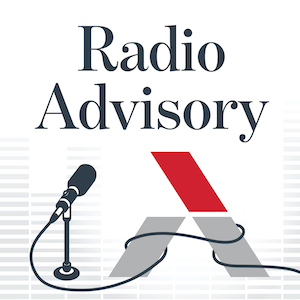Auto logout in seconds.
Continue LogoutA newly developed blood test that measures the body's T cell immune response to SARS-CoV-2 could give individuals "a comprehensive picture" of their immune protection against the virus, Denise Chow reports for NBC News.
Radio Advisory episode: What surprised us most about Covid-19, two years later
Study details and key findings
According to a study published Monday in Nature Biotechnology, the new test, which was developed by researchers at Mount Sinai and the Duke-NUS Medical School in Singapore, measures immunity by looking at the part of the immune system that boosts long-term immunity to help the body "remember" a virus.
To measure a person's immunity, researchers took a small blood sample and mixed it with pieces of proteins from the coronavirus. Then, they studied the sample to see whether the T cells were activated. T cells can "recall" traces of a virus from vaccinations or infections, meaning the test can measure immunity gained protection from either one or more Covid-19 infections or from vaccinations and booster shots, NBC News reports.
The test "could help make sense of the complex tangle of Covid immunity that now exists from person to person," Chow writes.
According to Ernesto Guccione, one of the study's authors and an associate professor of oncological sciences and pharmacological sciences at the Tisch Cancer Institute at Mount Sinai, immunocompromised individuals who may have a harder time generating immunity from vaccination could use the test to measure their response to the vaccines and assess vulnerability.
"Ideally, it will give you a full picture of where you stand and a comprehensive picture of your immune protection," Guccione said.
While previous studies have suggested that T cells can recognize all known variants of concern, including omicron, Guccione noted that scientists are still actively researching this finding. They are continuing to refine the test and studying how well T cells respond to different variants.
"The data coming out so far are very encouraging," he said. "The good news is that we develop immunity against multiple proteins from the virus, and many of them do not tend to be mutated by the variants."
The researchers are focusing on clinical trials and hope to gain approval from both FDA and the European Medicines Agency.
Commentary
Previously, tests that detect T cells have been primarily used in research labs—largely because the process is expensive and difficult to execute on a large scale, Guccione said. However, this new test kit is designed to be widely used, and results are typically available in under 24 hours, he added.
In addition, each test costs around $50 to run. However, Jordi Ochando, study co-author and an assistant professor of oncological sciences at the Icahn School of Medicine at Mount Sinai, said it is possible that the companies that license the product could change the price.
While Guccione acknowledged that more research is needed, he noted that the overall accuracy of the test results has been comparable to similar tests conducted in research labs.
Currently, the test can identify the activation of T cells, but researchers hope that future versions of the test may be able to provide more detail, Ochando said.
For instance, future versions of the test may be able to provide details on the magnitude and the duration of an individual's immunity to the coronavirus.
"To look at the degree of intensity of T cell immunity and have that correlated with protection — we're not at that level yet," Ochando said. "But we hope to be at some point." (Chow, NBC News, 6/14)
Listen to the Radio Advisory episode
At the start of the Covid-19 pandemic two years ago, many health experts were making predictions about what the future may hold, including Advisory Board's experts. In this episode, Rachel Woods sits down with Advisory Board's Christopher Kerns and Amanda Berra to discuss what we got right, what we got wrong, and some of the most surprising ways the Covid-19 pandemic has impacted the health care industry.
Don't miss out on the latest Advisory Board insights
Create your free account to access 1 resource, including the latest research and webinars.
Want access without creating an account?
You have 1 free members-only resource remaining this month.
1 free members-only resources remaining
1 free members-only resources remaining
You've reached your limit of free insights
Become a member to access all of Advisory Board's resources, events, and experts
Never miss out on the latest innovative health care content tailored to you.
Benefits include:
You've reached your limit of free insights
Become a member to access all of Advisory Board's resources, events, and experts
Never miss out on the latest innovative health care content tailored to you.
Benefits include:
This content is available through your Curated Research partnership with Advisory Board. Click on ‘view this resource’ to read the full piece
Email ask@advisory.com to learn more
Click on ‘Become a Member’ to learn about the benefits of a Full-Access partnership with Advisory Board
Never miss out on the latest innovative health care content tailored to you.
Benefits Include:
This is for members only. Learn more.
Click on ‘Become a Member’ to learn about the benefits of a Full-Access partnership with Advisory Board
Never miss out on the latest innovative health care content tailored to you.

